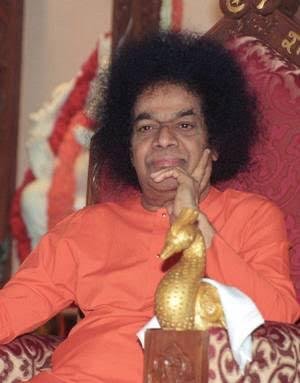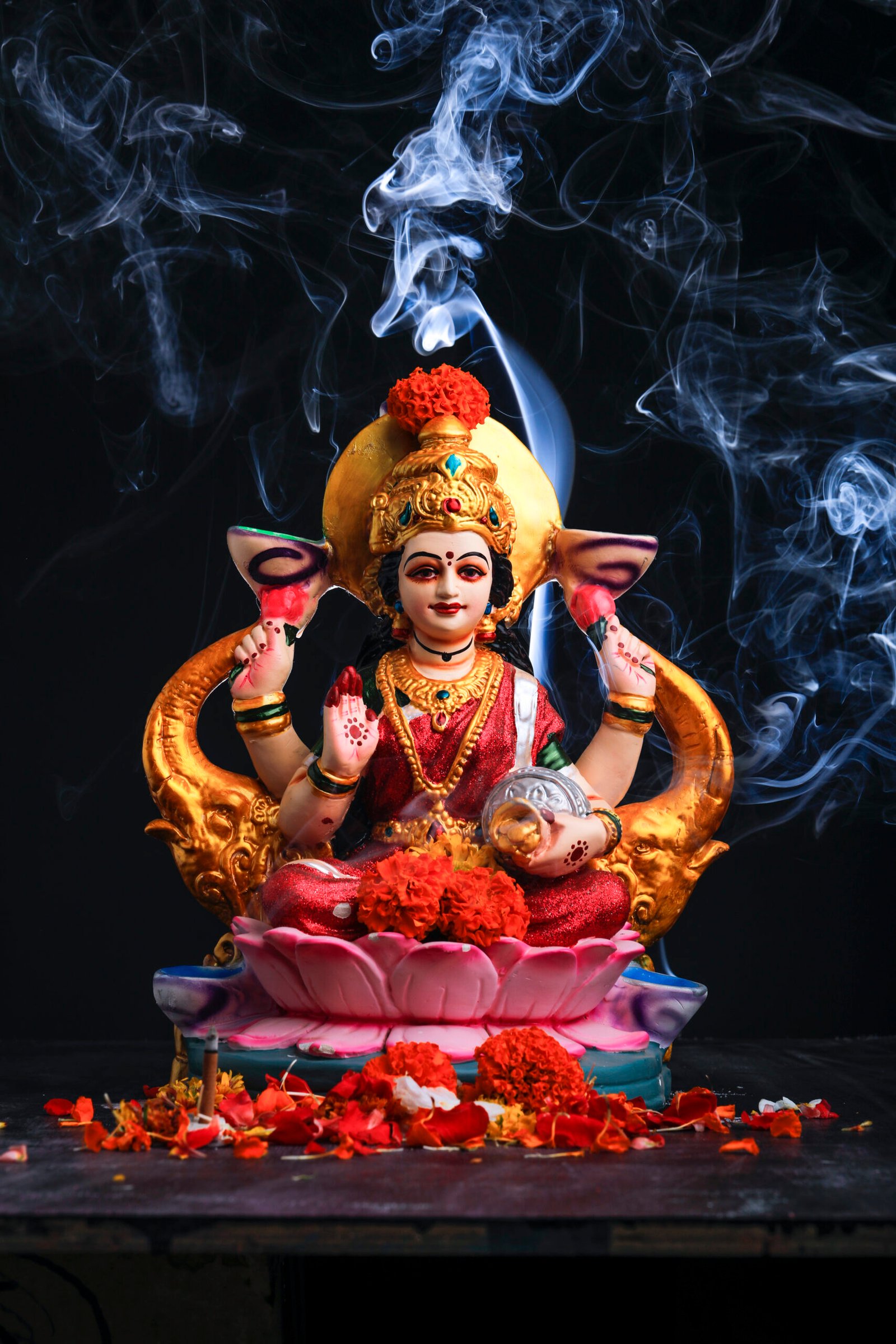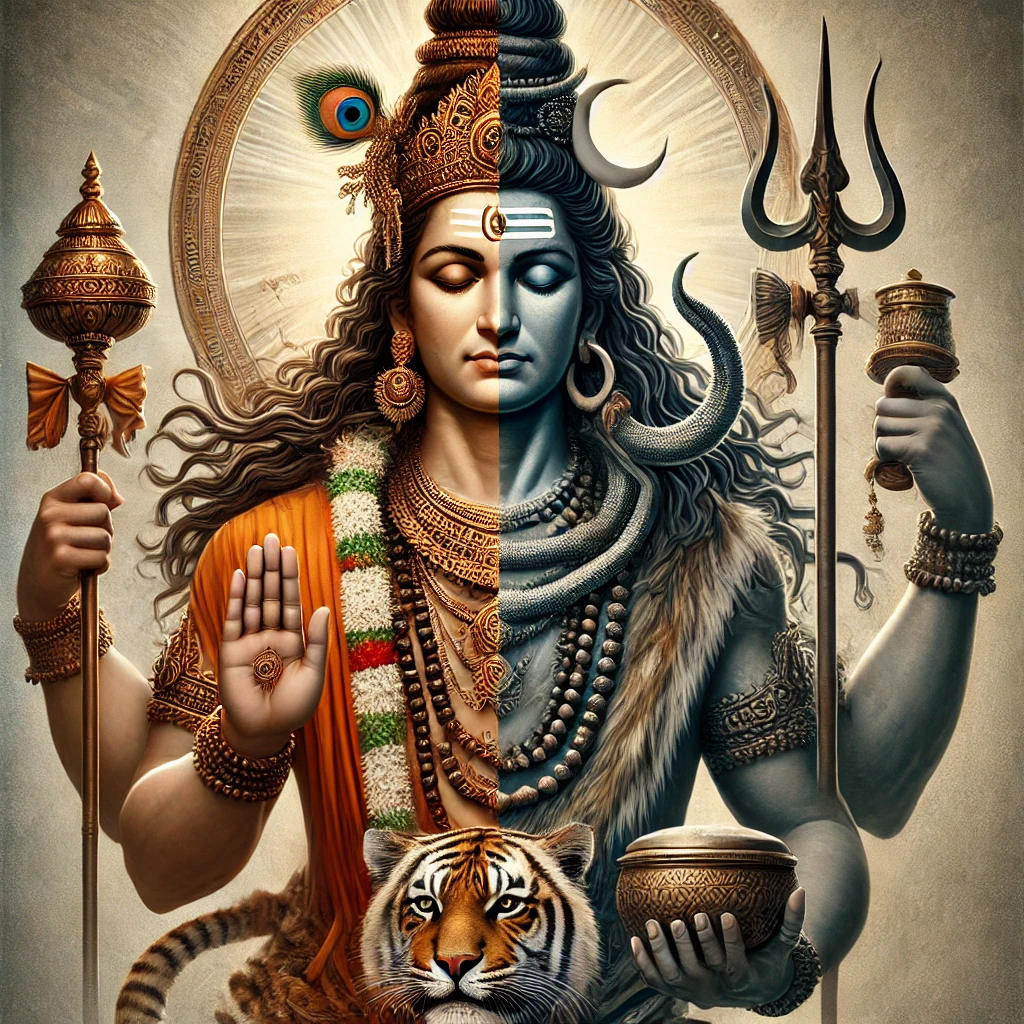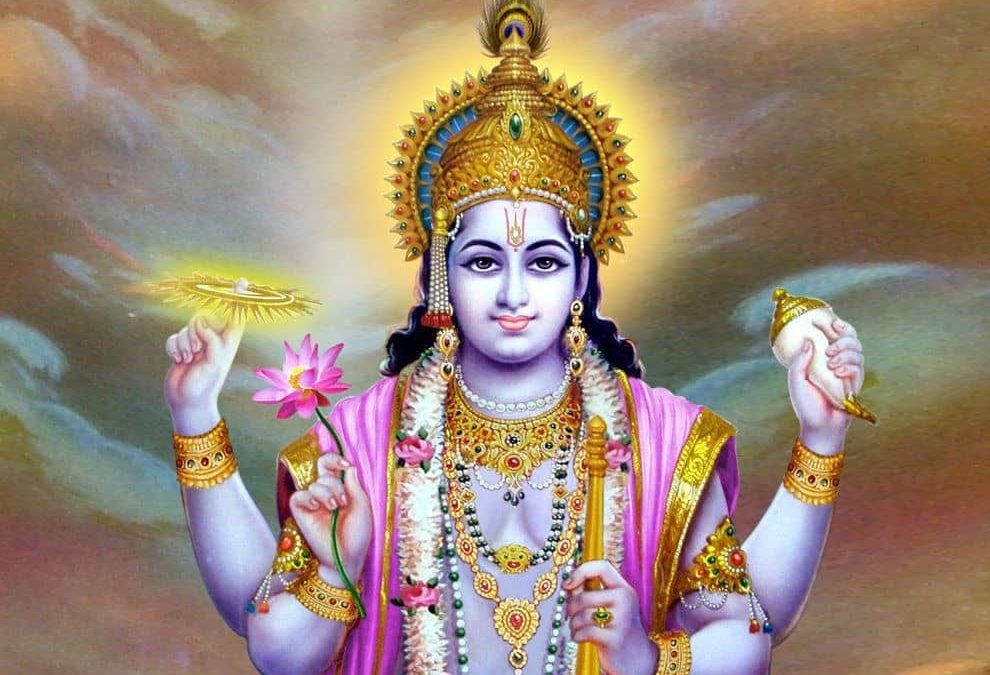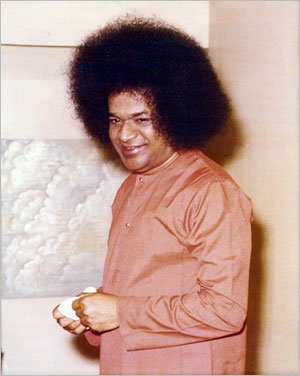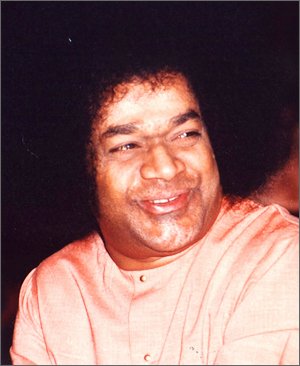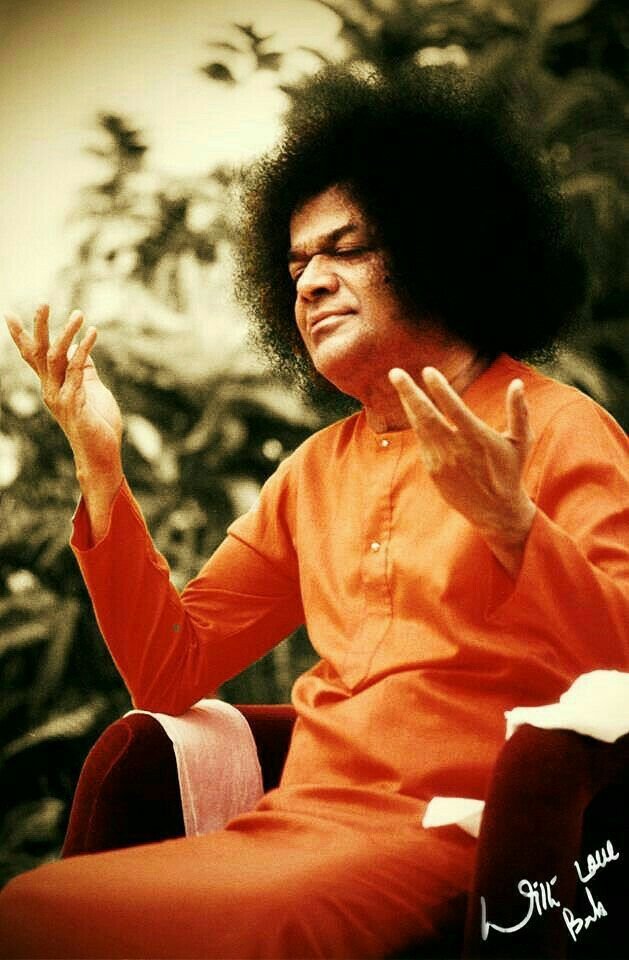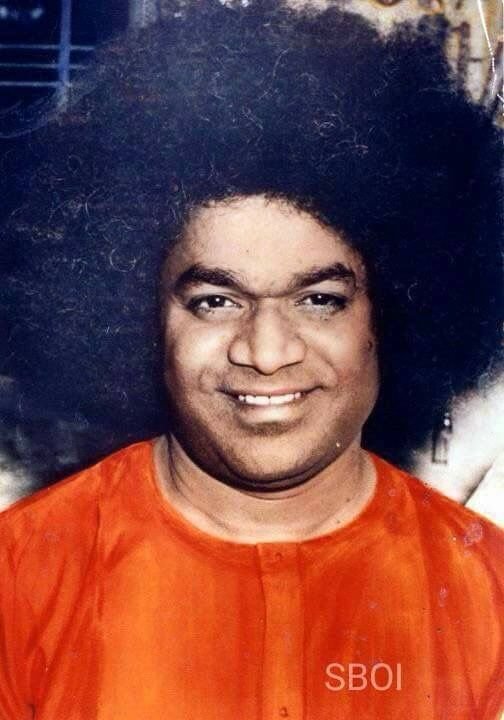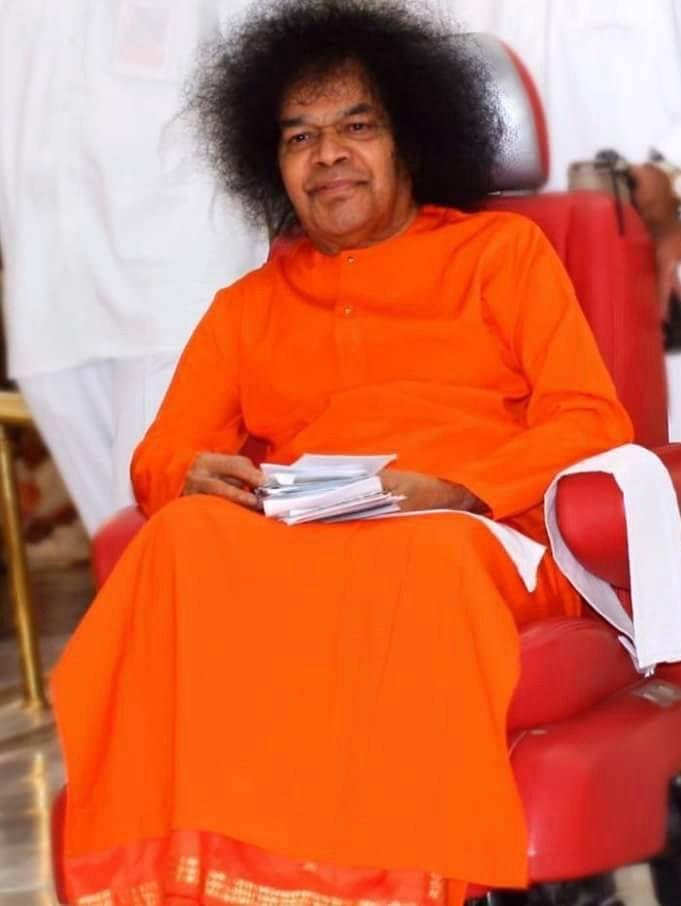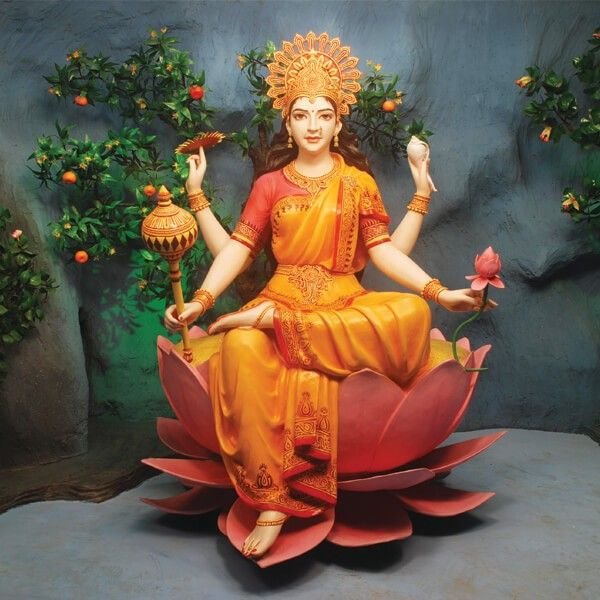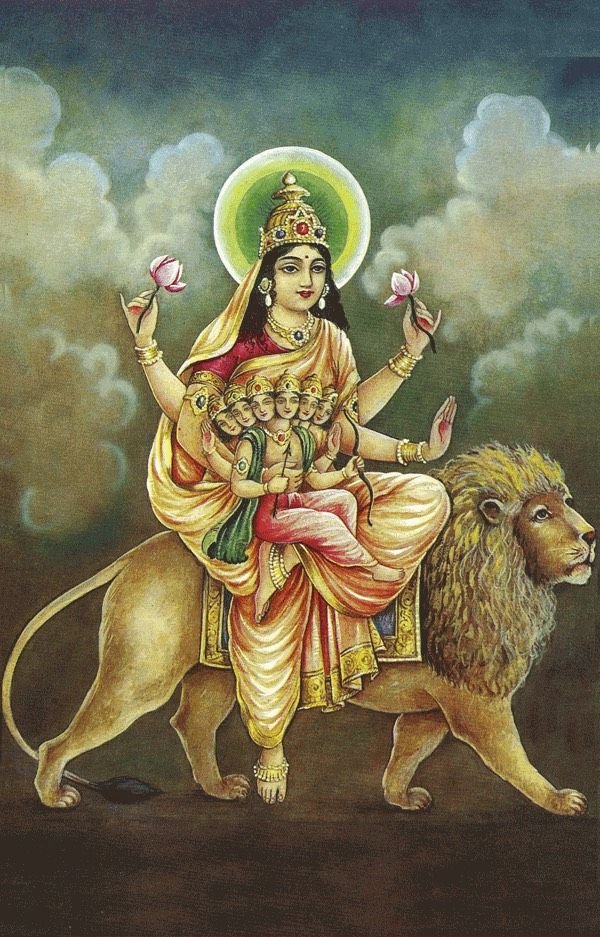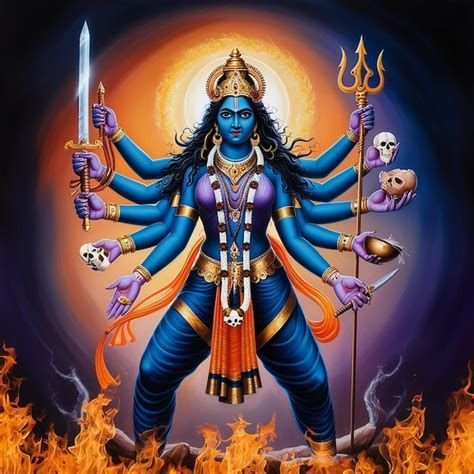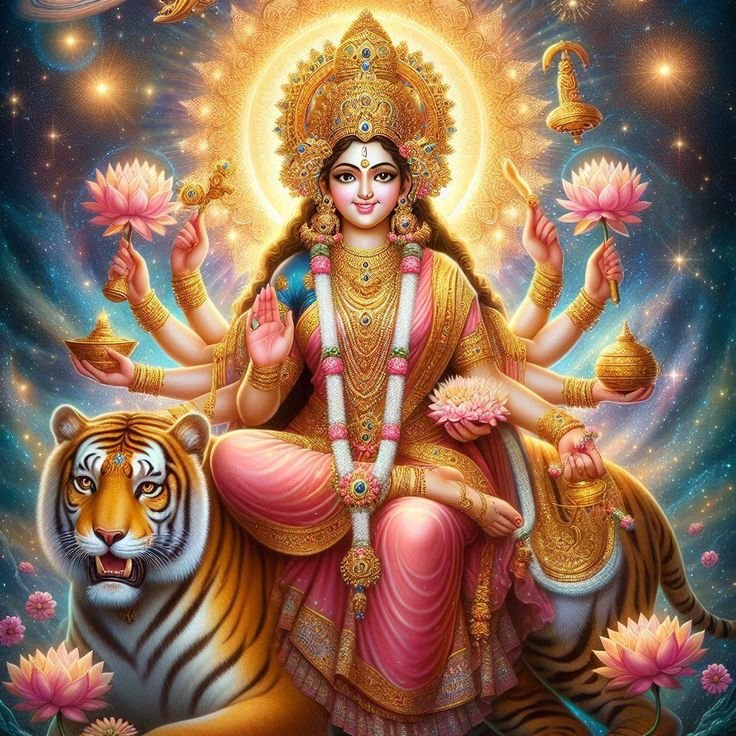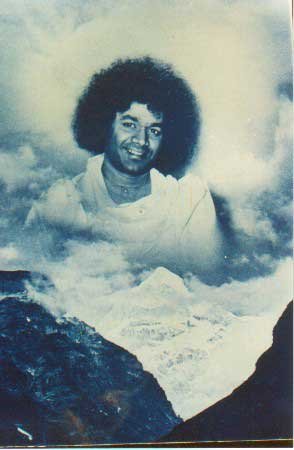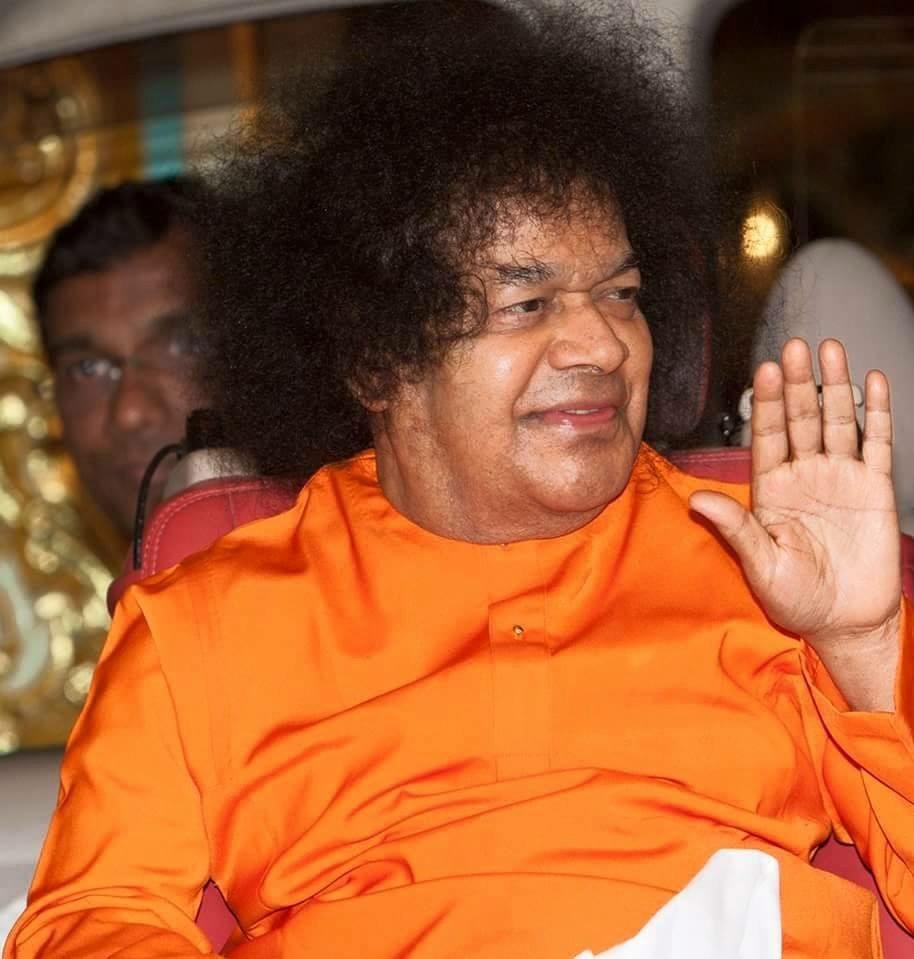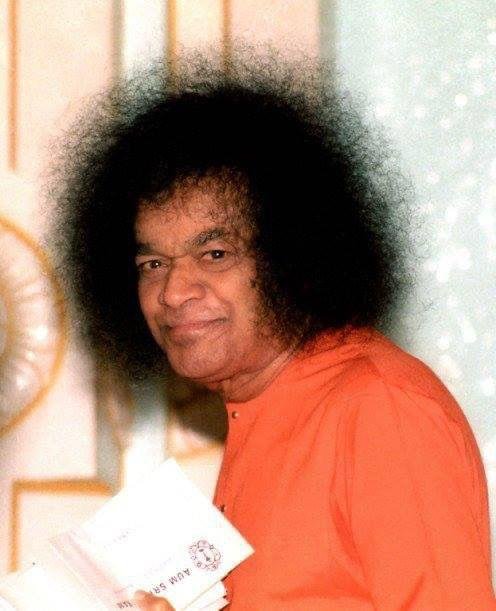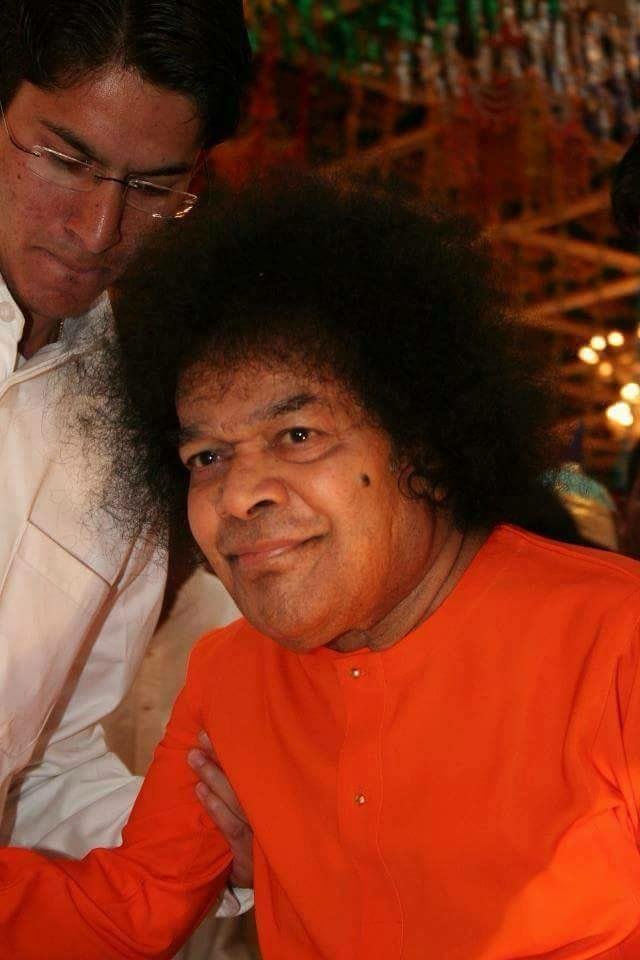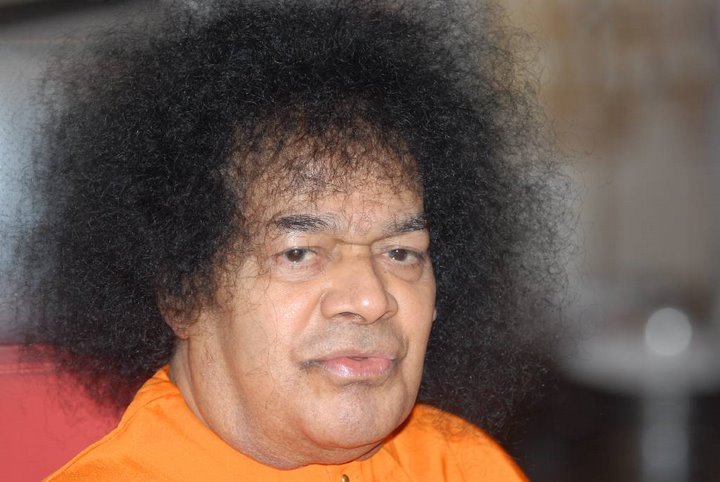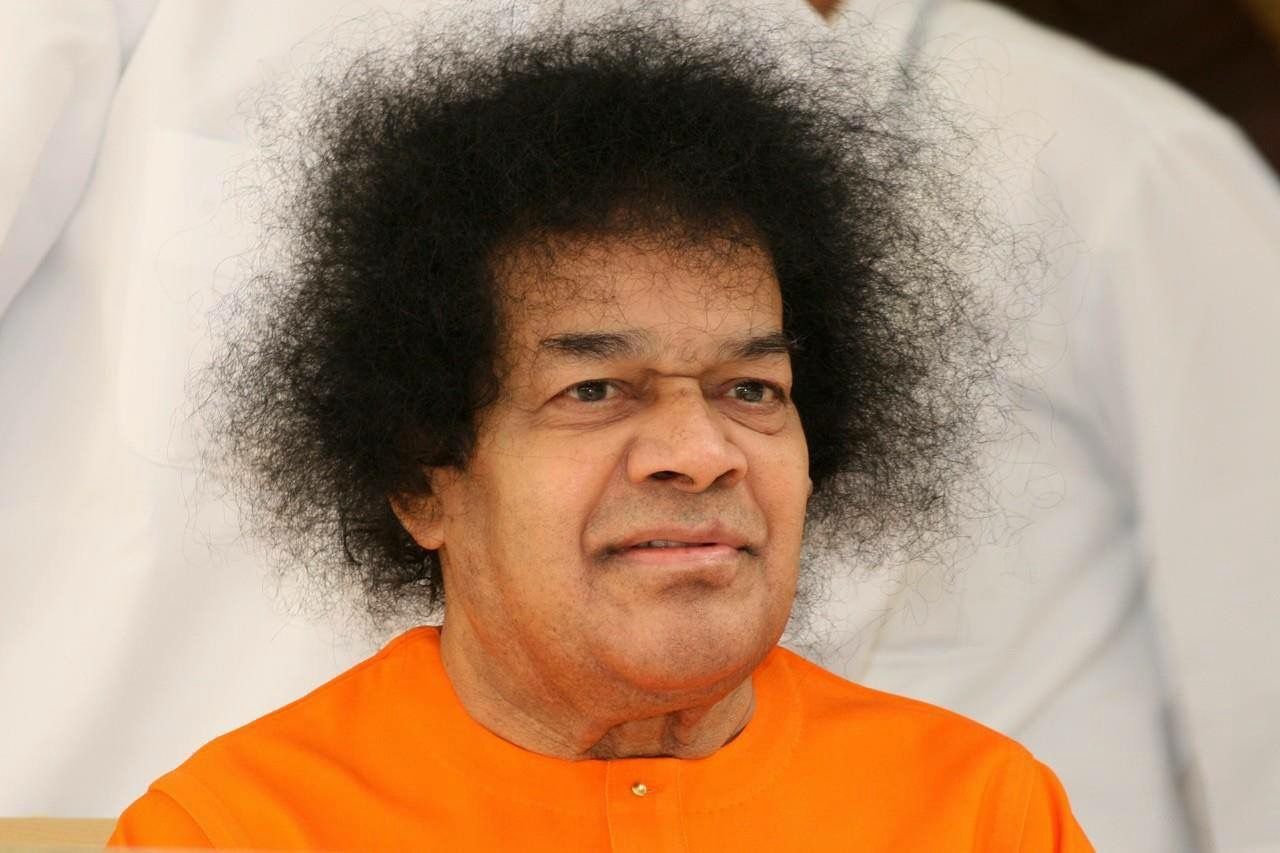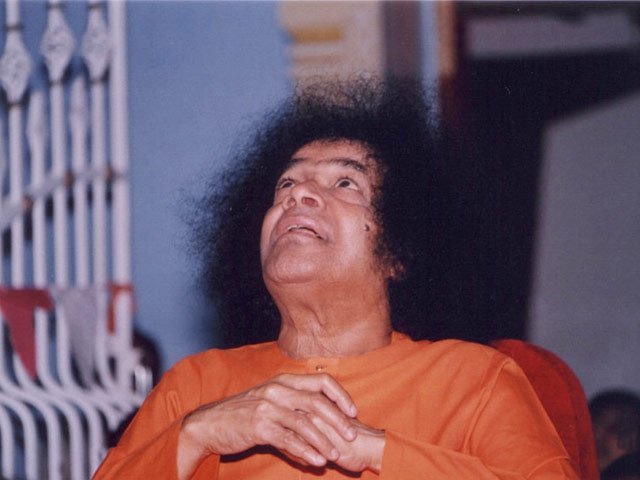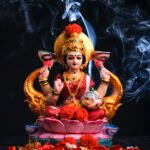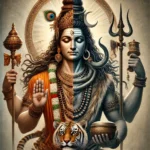CONVERSATIONS WITH SAI Satyopanishad
Satyopanishad┬Ā– Part Eleven
Direct Directions from the Divine
CHAPTER 4 – THE OUTER DOOR
Prof. Anil Kumar:┬ĀBhagavan! Should we follow any discipline or regulation in our food habits? Is that necessary for our spiritual pursuit? Sai devotees all over the world are vegetarians because of Your teachings; this is amazing. However, we have none today to tell us matters relating to our food habits. Kindly direct us.
Bhagavan
As is the food, so is the mind.
As is the mind, so are our thoughts.
As is the thought, so is the action.
As is the action, so is the result.
Therefore, the result depends on the food you eat. Meticulously and unerringly, you should follow discipline in your food habits. Food, Head, and God are to be viewed in this sequence. As is your food, so is your head; as is the condition of your head, so is the manifestation of God in you.

You should not eat too much. You eat to live and never live to eat. Eating in excess is a┬Ātamasika┬Āquality. If you eat once a day, you are a yogi; if you eat twice a day you are a┬Ārogi┬Ā(sick). If you take┬Āsattvika, soft, and balanced food in moderate quantity, you develop┬Āsattvika┬Āor a pious mind. However, if you eat┬Ārajasika, spicy, hot food you will have┬Ārajasika┬Āor an emotionally agitated mind, and if you have┬Ātamasika┬Āfood, that is meat, alcohol, and so on, you will have┬Ātamasika┬Āor a bestial, dull, and passive mind. So, it is food that shapes the mind, and on this your actions depend, leading to their corresponding consequences.
You should also think of┬Āpatrasuddhi, the cleanliness of the vessels and utensils used;┬Āpadarthasuddhi, purity of the materials;┬Āpakasuddhi, clean method of preparation or cooking; and┬Ābhavasuddhi, purity of the thought of the person who cooks the food. You shouldn’t eat food offered to you everywhere.
A few years ago, there lived a┬Āsanyasi┬Ā(ascetic) who on invitation dined at the residence of a businessman. That night this┬Āsanyasi, a celibate and spiritual seeker, could not sleep. Somehow, he fell asleep very late, and had a dream in which he saw a sixteen-year-old girl shedding tears
Since the┬Āsanyasi┬Āate the food cooked for the occasion, the girl who had died appeared in the dream with tears in her eyes. The young girl’s father was very poor and could hardly maintain his family. So, much against her wish, he gave her in marriage to this aged businessman. Out of frustration, she committed suicide by jumping into a well. The businessman had been performing her customary funeral rites and on the eleventh day requested the┬Āsanyasi┬Āto come over to his house for meals. This is the whole story behind the┬Āsanyasi’s┬Ādream. Hence, without discrimination, you shouldn’t eat any food offered to you.
You should mix some water in your milk before drinking. You should have a minimum interval of four hours between two meals. You should take food, which gives you enough calories needed for the body. You shouldn’t have too much of oily and fried curries. Sleep a while after lunch, and walk a mile after dinner. You should work hard and eat well.
A similar thing happened once to a disciple of Swami Nityananda. One day, he went out of the┬Āashram┬Āand ate food outside. While returning, he stole from a house a silver tumbler and brought it to the┬Āashram. But soon, he felt very sad over this action of his. He cried and repented.
The next morning, he went to his guru and confessed the whole incident. Because of his spiritual power, Nityananda could find out the reason. He said to his disciple, “Well, the food you had outside the┬Āashram┬Āwas prepared by a cook who at one time happened to be a thief, and as a result you developed the instinct to steal.” Therefore, cooks must have purity of thought.
Further, you should feel your body as light after eating, as before eating. The best thing is to keep half of your stomach empty. The remaining half should be filled in with water and other foodstuffs. Tubers are not good for the body. You should not drink whole milk.

Prof. Anil Kumar:┬ĀSwami! In Your organization or your institutions, workers, students, teachers, devotees and doctors wear the white dress always. Why? What is the reason?
Bhagavan:┬ĀWhite symbolizes purity and cleanliness. A pure white cloth may be compared to a clean mirror. If dust gathers on the mirror, you will not be able to see your reflection clearly. Similarly,┬Ābuddhi┬Āor intellect is like a clean white cloth. It is only then that you will be able to find out your own faults and apply your discrimination to rectify them. Today, this does not happen. People are able to see clearly the mistakes of others but don’t find their own faults. If you stand in front of a mirror, you see your reflection. But, if you turn it towards another man, naturally you will find his reflection. Isn’t it so? Similarly, the mirror of your┬Ābuddhi┬Āor intellect is turned towards others, and this makes you see the mistakes of others.
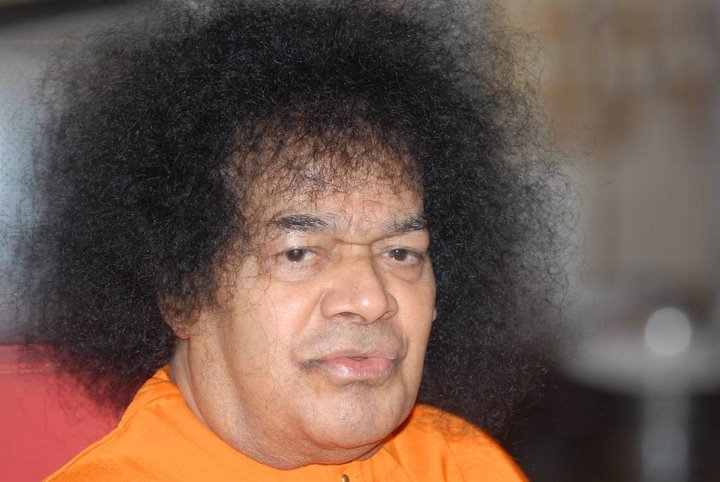
Even the slightest spot or mark is very clearly visible on a white dress. If you wear a colored dress, you don’t see dirt, spots, or any other stains. This is wrong. You should never hide and cover the dirt on your person. You should immediately wash it off. You should share the good with others. Neither good nor bad should be in you. You should shed the bad in you and share the good with others. But, some of you keep the good to yourselves and distribute the bad to others. It is a mistake on your part to do so.
Lord Siva offers you the best way by setting forth an ideal to this world. He kept and retained poison in His throat. So, He is┬ĀNilakantha, the blue-throated God. But, the cool and comforting moonlight from the moon over His head is distributed to others. It is for this purpose of sharing comfort with others that He kept the moon on His head.
Prof. Anil Kumar:┬ĀSwami! Today Sai devotees are spread all over the world. They range from Heads of Governments to ordinary citizens. As Your devotees, they enjoy special respect and esteem in society. What is the key to this?
Once, Lord Vishnu sent a message to Siva through His vehicle, Garuda, the eagle. As Garuda was flying fast with the message and was about to land near Siva, due to severe gusts of wind from his wings, the dust rose up as in a dust storm. Watching this, the snakes adorning the neck of Siva started hissing at Garuda ready to bite him.
Then, Garuda replied to the snakes, “You are with Siva, so you are hissing at me fearlessly. You come out of the Lord and see what will happen to you! I can finish you off in no time.” In the same manner, since you are with Me, you are respected and served. If you are away from Me, you will be put to infamy and humiliation.
You should not run after all silly, worldly things, like the common flies that land on anything and everything. Like honeybees you should only draw honey from flowers. Look at the person who drives the car of the President of India. He can never act as a common taxi driver. Similarly, those who sing the glory of God shouldn’t run after people for petty favors.
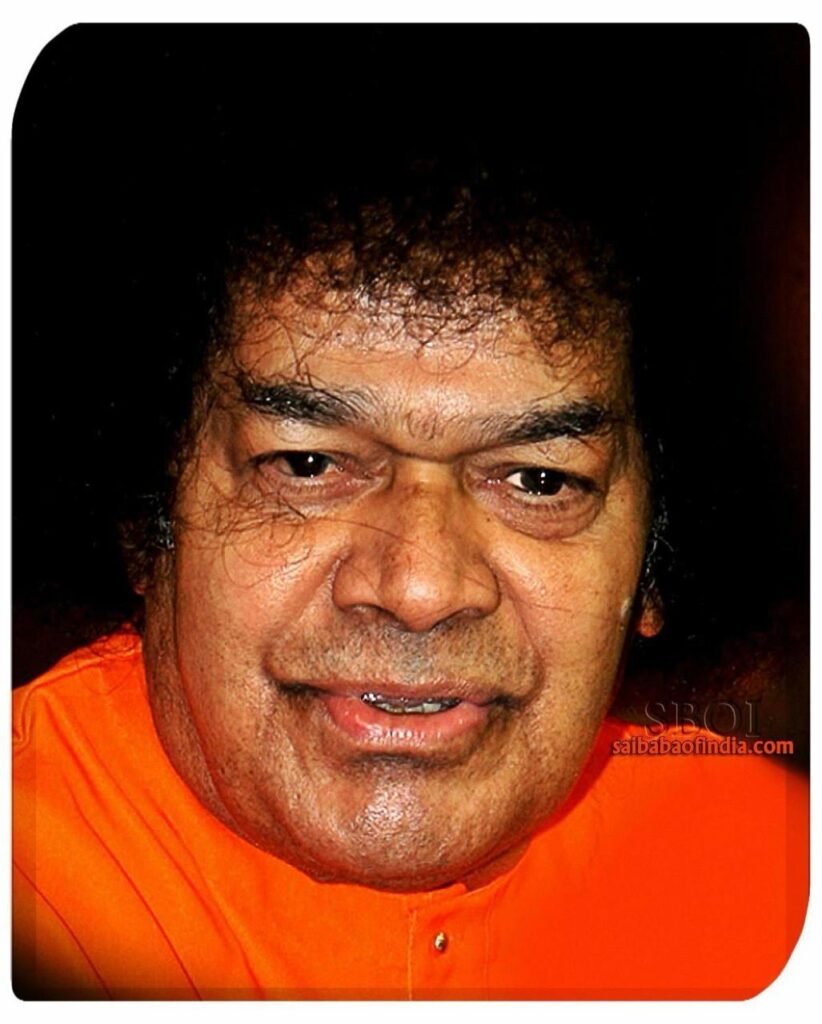
Prof. Anil Kumar:┬ĀSwami! We visit temples religiously. We go on pilgrimage once in a while. We continue to do our rituals and religious acts. But there is no cognizable change in our life pattern. Why is this so?
Bhagavan:┬ĀWorship, penance, meditation,┬Ābhajan, and so on are sacred activities that make your life meaningful, purposeful, and useful. But you can’t brand them as spiritual. All these are good actions and help you to spend time in a sacred way. Anything that you do with your mind (ego, ‘I-ness’) can’t be spiritual.┬ĀThe true spiritual path is┬Āatmavicara, self┬Ł-enquiry.
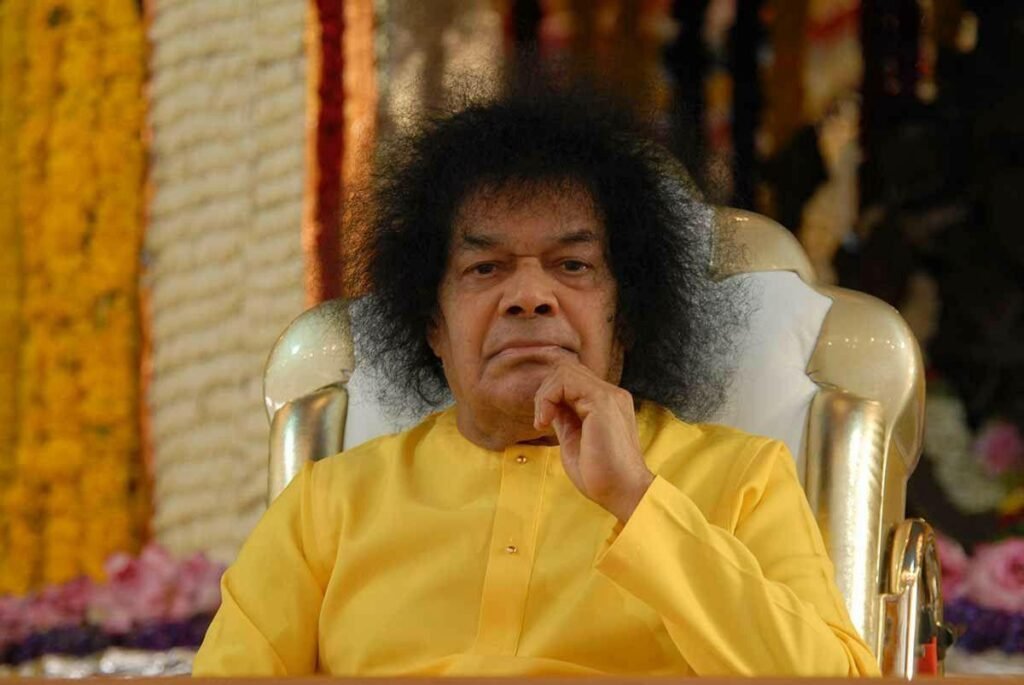
True spirituality alone can make you experience this awareness. But you find many forms of religious practice in the name of spirituality. The┬Āprasadam┬Āor sacrificial food offered to God is actually eaten by the devotees.
The seeker should know that he/she is not the┬Ādeha┬Ā(body), the┬Āmanas┬Ā(mind), or the┬Ābuddhi┬Ā(intellect) and that his/her┬Āatma┬Ā(true self) is beyond time and space. The self is not a┬Ānama┬Ā(name) or a┬Ārupa┬Ā(form) with which it is identified in this transient world.┬ĀAtma┬Āis eternal, pure, and non-dual.┬ĀTrue spirituality is the awareness of the┬Āatma.┬ĀThis is Brahman, the divinity which is spread all over in all creatures according to the scripture which says ŌĆ£eko vasi sarvabhutantaratma.ŌĆØ
Always remember that┬Ātyaga┬Ā(sacrifice) is the highest and the best form of┬Āsadhana. You have to sacrifice your time, money, resources, and energy. You should at least offer a┬Ātulasi┬Āleaf to God in worship. So,┬Ātyagenaike amr tatvamanasuh. Sacrifice makes you attain immortality.┬ĀTyaga┬Āis yoga, spiritual exercise.
Love expresses itself as sacrifice. Love without sacrifice is meaningless and totally selfish. You have to sacrifice the body feeling or attachment to the body. You have to sacrifice your wicked thoughts and bad feelings. Sacrifice is your true nature. Sacrifice is a divine quality gifted to man. In fact, you are not doing anything great and special by sacrifice. You are doing it for your own self.
There is another small story. A householder one day wanted to serve food to a Brahmin as part of a ritual he was performing. He could get one poor old Brahmin who agreed to dine at his house. The Brahmin came and hurriedly started eating the food placed before him.
The householder thought, “What a Brahmin is he? He didn’t even take his bath and do any puja before taking the food. It is not┬Āpunya, meritorious to feed such a man.” He grew so angry with the old Brahmin that he beat him with a stick and drove him out holding him by the neck.
On that day when the householder was asleep, he had a dream in which God appeared and said to him “Why did you invite the old Brahmin for food and beat him? Why did you turn him out wringing his neck? After all, you could not feed him even for one day while I have been giving him food all these eighty years! What a shame!”
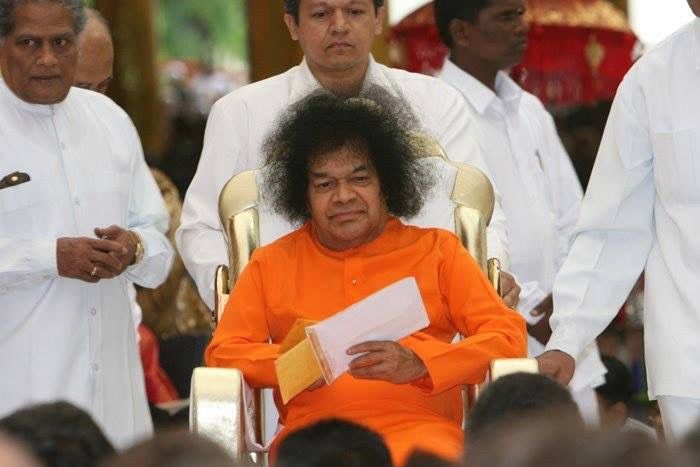
Worship,┬Ābhajan, and such other external activities are less than seva and sacrifice.┬ĀThe hands that serve are holier than the lips that pray. Love of God is devotion, which has to be expressed as sacrifice. Love is sacrifice. Sacrifice is┬ĀPrema yoga, the path of love to God. Sacrifice is yoga. If you have this faith, devotion and steadfastness would get strengthened and deep rooted. Through the path of┬Ājnana┬Ā(self-enquiry) proceed to┬Āatmavicara, follow and experience God. It is said,┬Ājnanadeva tu kaivalyam, the practical wisdom obtained from┬Ātyaga┬Āis the only way to┬Ākaivalyam┬Ā(liberation). This is a process beyond the mind and the activity performed by the body. Only then will you be able to achieve the expected results and attain┬Āananda (bliss).
Prof. Anil Kumar:┬ĀSwami! Why do we differ? Why does our behavior vary? What is the root cause behind these differences? How are we to cultivate good ideals and ways in life?
Bhagavan:┬ĀSince you have not studied and understood human nature wholly, you get this doubt. Man is a combination of three primary qualities, demonic, bestial, and human. It is the human quality that helps you to attain divinity.
Take, for example, an orange fruit. It consists of an outer bitter skin, hard seeds, and a soft juicy pulp. Likewise, a human being has a demonic nature like the outer bitter skin of an orange, bestial temperament like the hard seeds, and finally the human values like the soft juicy pulp. If we take, for instance, the ripe tamarind fruit, its outer skin is the bestial nature, its hard seeds symbolize the demonic nature, while its soft pulp is like human nature.
So, more or less, this depends on the association, be it demonic or bestial. This is the root cause of all the differences. But it is the human value that makes you ideal and enables you to experience divinity. There lies the sweetness and purpose of life.

Prof. Anil Kumar:┬ĀSwami! Is it necessary for us to observe austerity and follow discipline only inside an┬Āashram┬Āor should we follow them in the society outside as well?
Bhagavan:┬ĀI suggest that you follow discipline and lead a simple life wherever you live. You may go to any place, you should always follow┬Āniyama┬Ā(discipline), have┬Āsraddha┬Ā(sincerity), and take to┬Āsadhana┬Ā(spiritual practice). This is the spiritual way of life.

Out of two sick persons, one may be treated as an outpatient and the other may be admitted to a hospital depending on the ailment. But, both should necessarily take medicine for a cure, should they not? Similarly, you may reside in an┬Āashram┬Āor outside, but you should definitely follow discipline, be simple, and lead a spiritual life. As individuals caught in the cycle of birth and death,┬ĀBhava roga, you need to take the medicine of┬Āsadhana.
Prof. Anil Kumar:┬ĀSwami! Some people pose challenges that are quite unwarranted. Pious and noble people are disturbed and agitated in such situations. What should we do with those who challenge us unnecessarily?
Bhagavan:┬ĀOnly egoistic and jealous people with bodily attachment challenge in this manner. Aspirants and seekers should not be disturbed by these challenges. You should not react to their words and be affected thereby. A cow that grazes in a field may challenge another cow. A pig that feeds on dirty matter can challenge another pig.
Should man, who takes good food, challenge a pig? You can talk to an equal, but not to everyone. Don’t respond to everyone and lose your peace. In fact, you should face a challenge, if you must, in this way, “Do you help everyone as I do? Have you taken up welfare programmes as I have done? Are you broadminded like me? How many people have you transformed into the righteous way of life?” People should have healthy competition. You should not challenge for petty, low, and mean things.
Satyopanishad┬Ā– part Twelve
Direct Directions from the Divine
CHAPTER 4 – THE OUTER DOOR
Prof. Anil Kumar:┬ĀSwami! We are engrossed in worldly problems and responsibilities. We get deeply involved in self-┬Łcentred activities. Yet, we pray to God. In a sense, our minds are fully occupied with mundane thoughts. What is to be done?
Bhagavan:┬ĀThe Mahabharata explains this aspect clearly. The righteous Pandavas, the five brothers who spent their time in exile, never lost their devotion. Everything in life depends on priorities. They kept God first, others next, and considered themselves the last. Therefore, they were successful, and are remembered till this day.
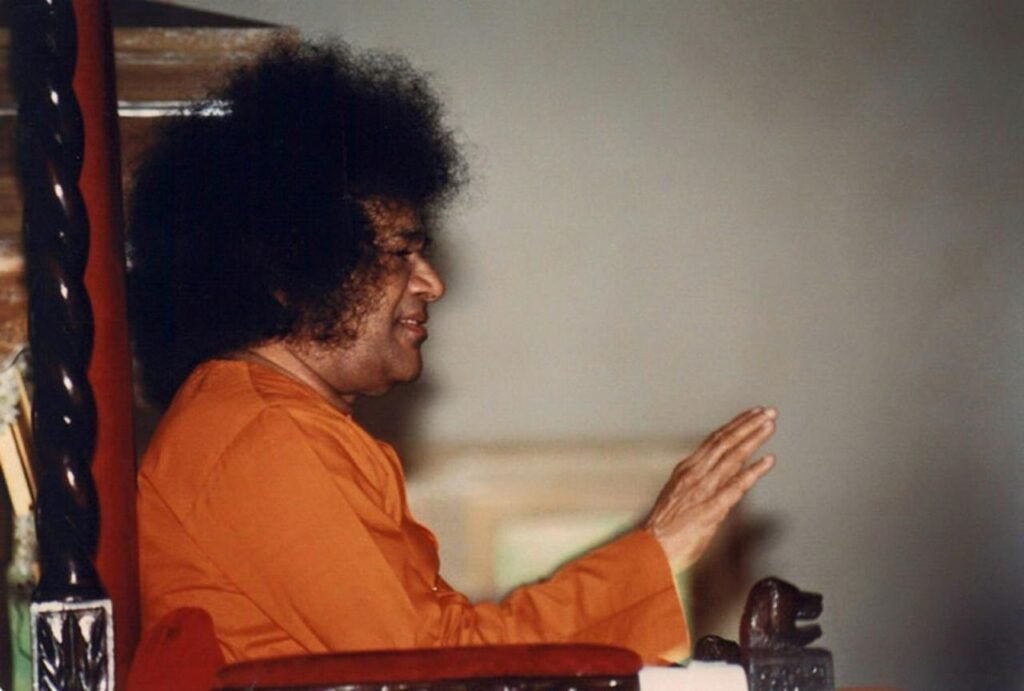
On the contrary, for the Kauravas (their cousins), the priorities were different; they kept their comfort and selfish interests in the first place, others next, and God last.
If you have God with you, you don’t need to worry. You will be successful in all fields. After all, in this world nothing is permanent; all are passing clouds. Not even one is permanent. Know that whatever happens in life, it is for your own good.
A human being walks on his two legs. So he is erect, unlike the four legged animals: After marriage, man loses some of his freedom with increasing responsibility, and becomes ŌĆ£four legged” and his walking pace slows down.
In spite of all your riches and positions, remember that true happiness lies in the company of and nearness to God. You may keep a fish in a gem studded golden vessel; it will never feel comfortable there. It freely swims only in water. Bliss lies in your true self. The rest, however valuable it is, leads only to unhappiness.
A simple example for you: Here is a glass of water, with sugar at the bottom. If you taste the water on the top, it is tasteless; and it is the same with the water in the middle of the glass too. But, get a spoon and stir the water in the bottom well until the sugar gets totally dissolved in the water. Now you taste it, either at the top or in the middle of the glass, the water is sweet.
If you exercise your intellect in the right direction, you will experience the sweetness of divinity everywhere.
So also in your life, ‘the glass’ is your ‘body’, ‘water’ is your life’, the ‘spoon’ is your ‘intellect’ and ‘sugar’ is ‘divinity’. If you exercise your intellect in the right direction, you will experience the sweetness of divinity everywhere.
What you need are peace and happiness. You should pray to God for these two essentials. You worship Him and serve Him; you aspire to be happy and peaceful, no doubt. But, your prayers to God are for worldly possessions. So, aspirations and prayers are at variance with each other. This is your weakness.
Bhagavan:┬ĀThe experiences of the devotees depend on their sincerity, steadfastness, devotion and faith. Nearness, in one way, is responsible for not realising the actual value of Divinity. Don’t you find a shadow under a lamp? Similar is the case here. As the light of the Avatar spreads everywhere, there is shadow underneath the light.
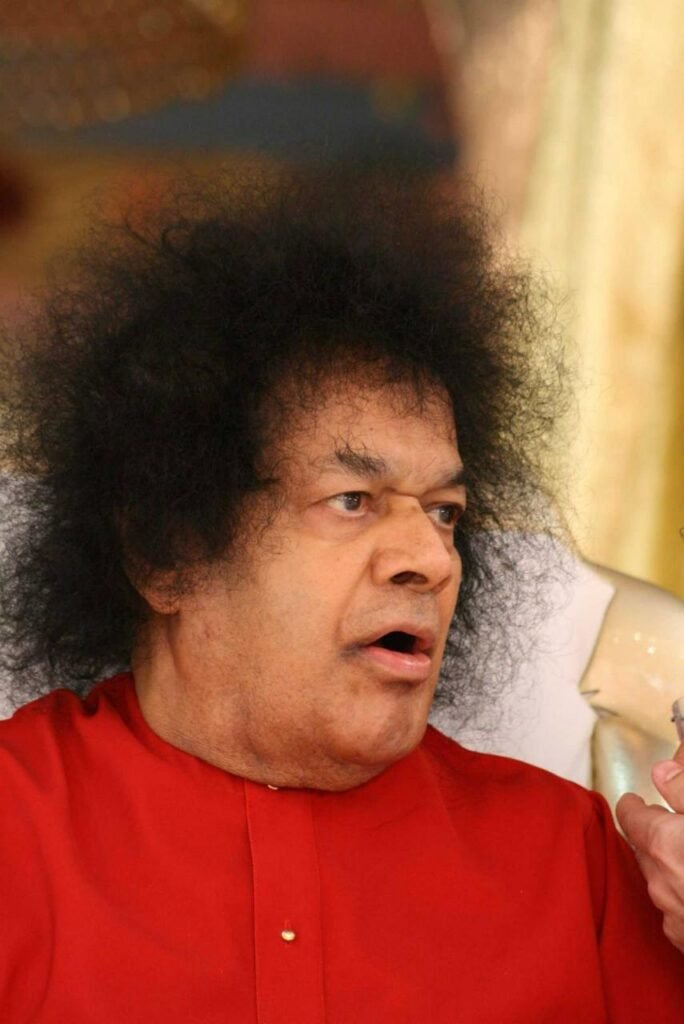
Prof. Anil Kumar:┬ĀSwami! Today, Sai glory brought almost everybody from all parts of the world to Your feet. People from many countries, whose names we had never heard before, are coming to You. People of almost all linguistic groups of the world are here. We have representation from all walks of life. It is unfortunate that we, who have been here with You, find ourselves less devoted to You than Your overseas devotees. We see them practice Your teachings with much more sincerity of heart than us! Why is this happening?
Why? It is because of their implicit faith in the teachings of Swami. I don’t send invitations to anybody to come over here. There are no welcome boards nor do I say goodbye to anyone. But people come in large numbers everyday. Why? This is the love of Divinity that attracts and draws people to this Prasanthi Nilayam.
It is only God whom you respect, love and worship. You respect your boss, administrators, elders, etc; you love your parents, family, and friends. All the same, you don’t worship your officers, or the members of your family. Isn’t it so? But you respect, love and worship only God.
Prof. Anil Kumar:┬ĀSwami, devotees come from far off places like Argentina, Philippines, Guatemala, Russia and many other countries from all over the world. They return from here with heavy hearts, not able to leave You. How should they take it and what exactly do You want them to do in such circumstances?
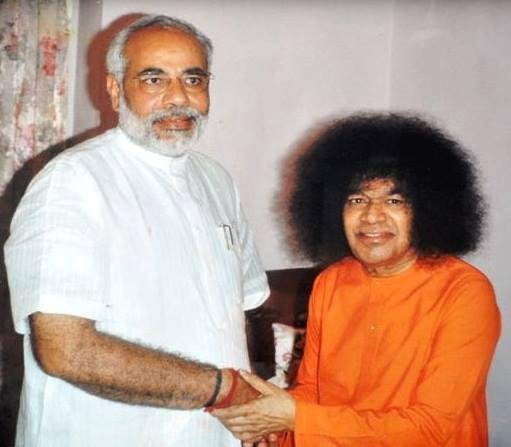
Bhagavan:┬ĀYou should experience the omniscience of God. God is always with you, around you, below you, above you and in you. In fact, you are God. Devotees come to Swami to charge their batteries.
Always remember this: ‘Near’ is not important to Swami, ‘dear’ is important. The flame burns brilliantly when the breeze blows. Two wooden pieces are close to each other; this is ‘nearness’. As you light and burn them, you also fan them, so that the flame rises upwards. This fanning is ‘dearness’. Mere nearness is not enough.
Always remember this: ‘Near’ is not important to Swami, ‘dear’ is important
Suppose there is a lotus flower in a lake. There are a number of fishes and frogs in the same lake that do not know the value of the flower. But honeybees come from long distances and suck nectar from the flower. Bees represent dearness, while frogs and fishes stand for nearness.
Prof. Anil Kumar:┬ĀSwami! It is our common experience that some of us are quite good for sometime – devoted, disciplined and dutiful, especially when we are here in Your proximity. Then, why do we change when we are somewhere else? What happens to all that we learn here? Why do we lose sacred qualities like sincerity, devotion and steadfastness when we are away? Kindly pardon our mistakes and let us know the causes of our downfall?
Bhagavan:┬ĀThis is a wrong statement. Sincerity, devotion, discipline, steadfastness and all the noble qualities that you claim to have possessed while you are here are not true and natural; they are artificial.
You say that circumstances change you. If noble qualities were really present in you, you wouldn’t change due to the change of circumstances. No change in the environment will ever affect you. Truly, the mistake lies in you alone; you don’t have strong faith and conviction. In fact, the seeds are there lying underground and are waiting to sprout at an appropriate time. Environment has no legs, hands and life to move about like you!
You are now here in Kodai Kanal. You are fully clothed, with sweaters and shawls, rugs and blankets and all the woollen stuff to keep you warm in this cold place. If you don’t have warm clothes, whose fault is it
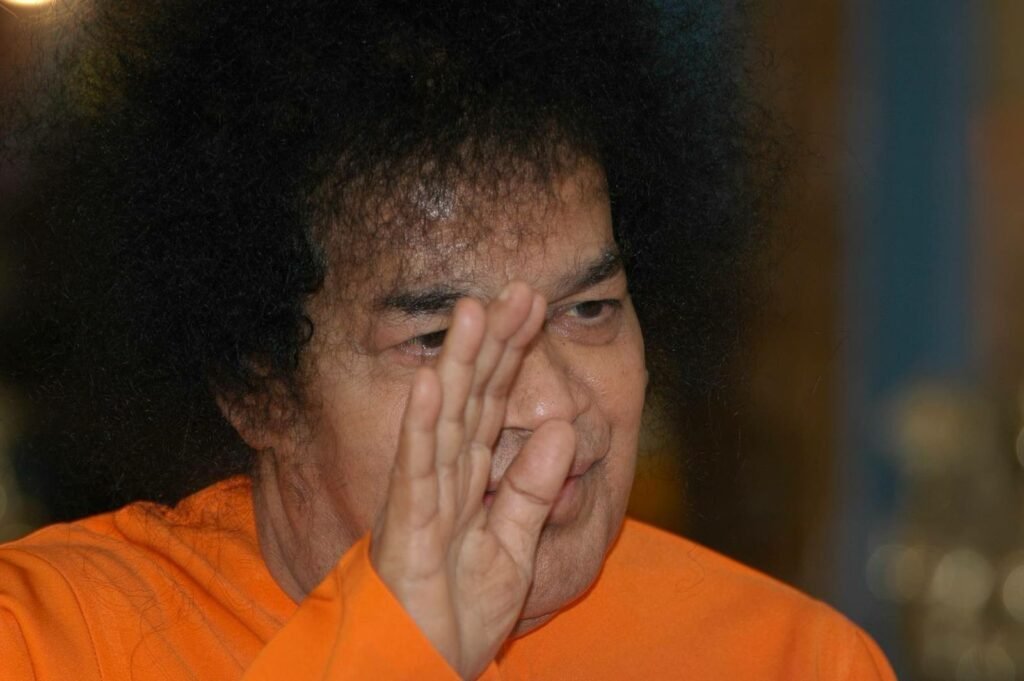
Prof. Anil Kumar:┬ĀSwami, we are here by Your sheer grace and mercy. You say that You spend three-fourths of Your time on Your boys. What do You want us to do?
Bhagavan:┬ĀThere is nothing you can do for Me. I don’t need anything from you. I only give and never receive. I do not accept or receive anything from anyone. I never stretch My hand before anybody in order to receive something. I have never asked anybody for anything till now. In fact, all things happen according to the will of Swami.
But, I ask you to give Me only one thing, and that is enough. What is it? It is your love. Your parents sometimes stay away from you. But I am always with you, in you, below you, above you and around you. I am indeed yourself. If you remember this always, that is enough.┬Ā[To the students]┬ĀYou follow Swami, and you will shine like a precious gem in the future.
But, I ask you to give Me only one thing, and that is enough. What is it? It is your love. Your parents sometimes stay away from you. But I am always with you, in you, below you, above you and around you. I am indeed yourself. If you remember this always, that is enough.
You will be highly respected and will get a good name in society. Whatever you have learnt here in the hostel and the college, and on top of all this, the love of Swami you have received should never be forgotten. Get for yourselves a good name. Follow Swami’s teachings.
Once King Janaka put a question in the open court, “Is there anyone who can teach me┬ĀBrahmajnana, knowledge of the ultimate reality, within the time it takes to place my foot in the stirrup and ride on the back of my horse?” His preceptor, Yajnavalkya said, ŌĆ£Oh King! I shall teach you. Follow meŌĆØ. King Janaka accordingly got up from the throne and started following him. After walking some distance, Yajnavalkya asked the King to stop and sit on the ground in the middle of the royal highway. Janaka obeyed and sat down accordingly.
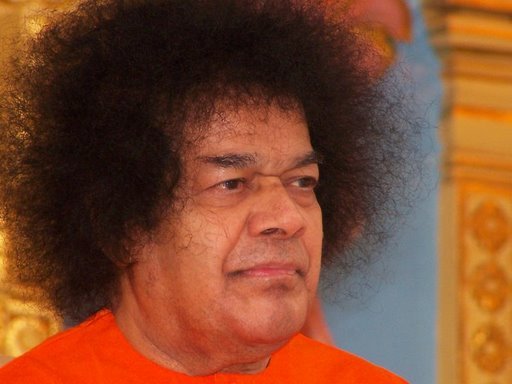
The Queen came out of the royal palace, sat in front of him, cried and begged him to let her know what had happened. The King did not speak to her too. Soon everyone came to know that Sage Yajnavalkya was responsible for the present plight of the King. They went out in search of him, and finally got him. They questioned him as to what he had done to the King that made him sit on the ground in the highway. Yajnavalkya replied that he did not do anything to the King, and that he never asked the King to keep silent.
I needed your permission to do anything other than what you had told me to do. The moment you wanted me to follow you, I was no longer my own. I had to wait for your instructions, isn’t that right, Sir?” This kind of strict obedience to his Guru made Janaka a┬ĀRajarshi, a saint among kings. What is expected from all of you is following the teachings of Swami.
Prof. Anil Kumar:┬ĀSwami! How can we develop confidence in ourselves?
Bhagavan: By discrimination if you eliminate all doubts and confusions, you can develop confidence in yourselves. Today no one is exercising this faculty of discrimination, a gift from God. You have buddhi, the intellect, which discriminates. Since you don’t discriminate, you are full of confusion and doubts. Hence, modern youth are not able to accomplish anything worthwhile. For any human attempt, confidence is absolutely necessary.
Prof. Anil Kumar:┬ĀSwami! I am interested in philosophy. Do you advise me to study philosophy?
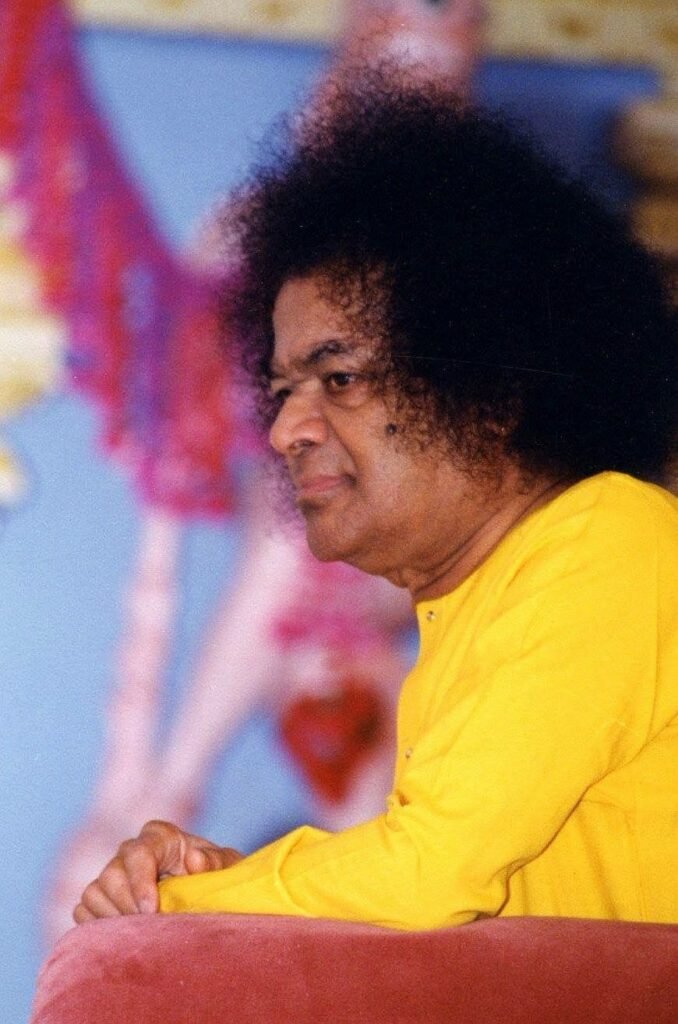
Bhagavan:┬ĀMany read books on philosophy. What is the use? Their reading of philosophy brings them down to ŌĆ£full lossŌĆØ. It should be the other way round. Philosophy should “fill loss” in our life; only then is its study useful.
Go through the book of your heart. It is not enough if you merely repeat mantras. You will never be able to experience their efficacy by doing so. You have to know what you are repeating. In other words, you need to have practical knowledge.
Take for example, the Bhagavad Gita, where in the first verse,┬ĀdharmaksetrekuruksetreŌĆ”; the king wanted to know from Sanjaya what was happening there in the battlefield. Does it not look silly and meaningless? In a battlefield what else can one expect other than fights and killing. Did King Dhritarashtra expect a dinner or a football match in the battlefield?
Then, why did he put that question to Sanjaya at all? Well, it is not as simple as it sounds. Dhritarashtra wanted to know from Sanjaya if his sons, the Kauravas, had undergone any transformation in the last minute before the war started, which possibly could lead to a compromise between the Pandavas and the Kauravas.
So, mere reading is not enough. One must know the inner significance and subtle meanings of the text for a clear understanding. This is “Fill loss”, which is true philosophy.
Prof. Anil Kumar:┬ĀSwami! How are we to believe that all this is happening everyday in Kodai Kanal? Can we estimate our good luck that is responsible for the golden opportunity of sitting at Your lotus Feet and listening to five discourses a day? How are we to retain this privilege?
Bhagavan:┬ĀAs you rightly deserve, you get this opportunity. But you need to note one important point. The Bhagavad Gita says,┬Āksinepunye martyalokam vis’anti, which means that the merit accrued is exhausted with the passage of time. You will have to return to the earth, even from the highest of heavens.
But as legislators, parliamentarians and people’s representatives, if they frequently visit their constituencies, meet the electorate and render service to the voters who elected them to those positions, they can contest elections again and return to the assembly or parliament as the case may be for another term. Similarly, while enjoying the present golden opportunity you can still work for its continuity by┬Āsatkarma, doing good deeds,┬Āsadalocana, entertaining good thoughts, and┬Āsatsang, joining good company.

